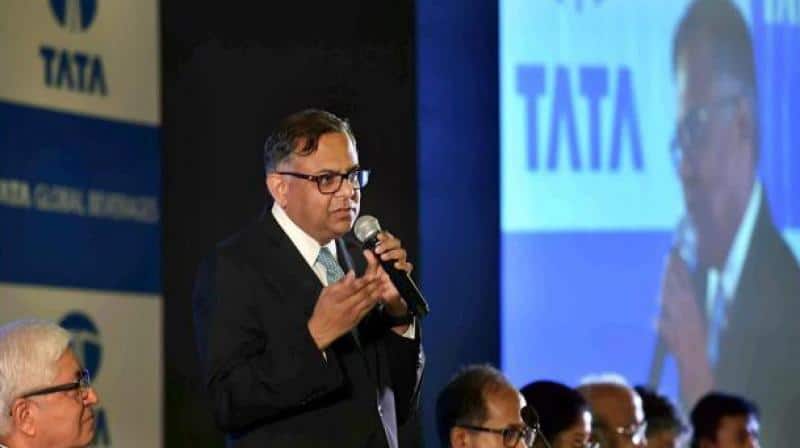New Delhi: No other market is going to grow faster than India in the next 10-20 years and Tata companies should use the opportunity to make investments and take part in and contribute to India’s growth story, according to the group’s chief N Chandrasekaran.
At the same time, “some level of consolidation is essential” for the salt-to-software conglomerate, which saw 64.1 per cent of its total revenues in 2016-17 from global operations in over 100 countries, he observed.
“No other market, I believe, is going to grow faster than India in the next 10-20 years. Considering our demographic profile, we will have a consumer population that is going to have higher spending power,” Chandrasekaran said in an interview to the group’s in-house magazine Tata Review.
Stressing that India is “a massive market, the biggest game in town”, he said, “The opportunity for many of our businesses in India is fantastic. They should use this opportunity to make investments and participate in and contribute to India’s growth story.”
He, however, said different firms of the Tata group need to understand their individual domestic prospects, because all of them may not have the same growth opportunities.
“Each will need to craft its own strategy and this will have to be company specific,” Chandrasekaran added.
In 2016-17, Tata group’s international revenues were at USD 64.40 billion, 64.1 per cent of total USD 100.39 billion. The UK and the US were two main overseas revenue contributors.
When asked about the ‘constant criticism’ of the Tata group being too widespread which prevented it from capitalising fully on its potential, he said, “There is definitely some truth in that.
“We have far too many companies in the Tata group and some level of consolidation is essential. Our aim should be to achieve the optimal level of consolidation without losing the entrepreneurial spirit we are famous for.”
Chandrasekaran, however, said the management has not worked out all the details about the consolidation.
“We have our thoughts on this and we will consider them carefully,” he said.
After taking over as chairman of Tata Sons, the holding company of major Tata companies, in February this year, the seasoned marathoner has been on a sprint to address pressing issues that “required priority intervention”.
Citing examples of Tata Steel-Thyssenkrupp merger and the Tata Teleservices-Bharti deal, he said, “Suffice to say, we are focused on the issues that need our attention.”
“Overall, it has been a good experience thus far,” he said about his stint as the Tata group chief.
Highlighting the significance of digitisation and how the world was changing rapidly, Chandrasekaran said Tata companies have to think through their digital journey.
“They have to understand what it means to them, be open enough to adopt and adapt, and make the necessary adjustments in their business models. We will definitely engage with our companies and bring them the necessary tools to get them started on this journey,” he said.
PTI

